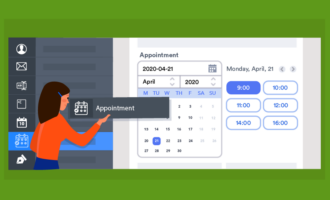Learning to manage your time efficiently means you can accomplish your goals faster, get work completed on time, and take control of your schedule.
9 time management skills
- Prioritization
- Organization
- Delegation
- Focus
- Learning to say no
- Batching
- Minimizing distractions
- Managing stress
- Asking for help
1. Prioritization
When you look at everything you need to do for the day, it’s natural to try to tackle the little things first. It’s easier and gives a sense of accomplishment, even if those things shouldn’t be a top priority.
This can make you feel busy, but you won’t be getting the important things done.
Lots of people recommend starting your day off with a to-do list. But our CEO, Aytekin Tank, suggests using the “hunter strategy” to get things done: Choose the one thing that must get done today, and do it.
For example, if you have a client project that’s due on Friday, then it should be prioritized above updating the copy on your website. Yes, the website copy is important, but it isn’t as urgent as the client work.
2. Organization
Staying organized is crucial for staying on track. This goes beyond having a tidy workspace. You should maintain a calendar with all of your deadlines. If you prefer the traditional pen and paper, then get a planner or journal. If you do better with digital tools, there are plenty of productivity and calendar apps available.
For example, Calendly works great for scheduling meetings. You can block out specific time slots for calls and meetings. You can then share your calendar, allowing people to book a time that works for them.
3. Delegation
It can be hard to let go of tasks and allow others to handle them. However, delegating your workload is an important part of managing your time. This isn’t to say that you should pass off all of your work to an intern. Delegating means handing off the tasks that could more efficiently be done by someone else.
For example, if you’re a freelancer, outsourcing your bookkeeping could free up time for you to work on paid client work instead. If you’re a manager at a creative firm, you could delegate tasks to your team instead of taking them all on yourself.
4. Focus
Contrary to popular belief, research has proven that a singular focus is more effective than multitasking. When you multitask, you have to break the flow of what you’re working on to switch to a different task. Switching gears takes time.
For example, checking your email seems harmless enough. You may think that you can quickly check your inbox, then switch back to the task at hand. However, when you go to your email, your brain has to switch into a different mode to respond to the emails.
You have to get your brain back into gear before moving back to the project you were working on. It’s best to work on your project and then check your email when you’re done, so you don’t lose focus.
5. Learning to say no
Saying yes to anything and everything is a surefire way to kill your productivity. You don’t want to disappoint the person asking something of you, so you automatically say yes to the request — no matter the cost. Not only does this add to your busy schedule, but you’re likely to do a poor job on the task.
Instead, set boundaries. It’s OK to say you’re unable to take something on. If the request is unimportant or takes you away from your priorities and goals, then it’s best to say no. In this way, you value your time.
6. Batching
Batching your tasks is an excellent way to stay focused. Instead of switching gears between unrelated tasks, you can lump similar tasks together and knock them out at once.
For example, if you have multiple phone calls to make, schedule them all at once. Then schedule all of your invoicing for another time block during the day. This way, you can stay in the same mind-set while performing these tasks instead of wasting time switching back and forth.
7. Minimizing distractions
Whether they’re out of your control or you create them yourself, distractions can drain your time. Take a moment to think about what distracts you throughout the day. Then find ways to eliminate or reduce those distractions.
For example, you can wear headphones or set “visiting hours” for chatty coworkers. If you find yourself wandering the internet during office hours, use a tool like Rescuetime to block distracting websites.
8. Managing stress
Stress can quickly kill your productivity. The goal isn’t to pack as much as possible into a day but to manage your priorities effectively. It’s OK to give yourself a break. Outside of work, engage in activities that relax you, like meditating.
Some people swear by the Pomodoro Technique. This time management system organizes your workday into chunks. You work for 25 minutes and then take a five-minute break.
Find a work schedule or relaxation technique that works for you. If you’re under stress, you can’t produce your best work.
9. Asking for help
Last but not least, don’t be afraid to ask for help if you find yourself struggling to comprehend a task or just need another hand.
You don’t have to change everything all at once. When you work on one skill at a time, you can see which levers impact your productivity the most.






































Send Comment: